Fiasco for Tippu at the third Anglo-Mysore war.
Malabar has gone to the English by the Treaty.
Shakthan Thamburan is the king of Cochin.
The French Revolution.
Execution of Louis XVI.
Revolt of Pazhassy Raja.
Neopolian attacks Holland.

1795
The Dutch Bids Adieu
The stage for French Revolution was set in France when the third Anglo-Mysore war was raging in India.
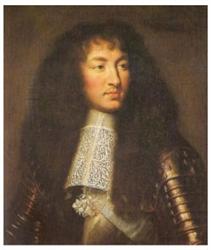
The people of France saw Louis XVI, who came to power after the death of Louis XV declared insolently that after me deluge. But unfortunately, Louis XVI, despite being good natured, was a nonentity lacking the courage and capability to face problems. His ever readiness to do anything for his wife, the luxury-lusty and beautiful Mary Antonito, created a scenario where corruption and anarchy found a fertile ground. The country was full of killers and black marketers while the economy landed in doldrums because of the wars waged by and of the profligacy of his predecessors, peasants, youths and workers finding life a hell. France, which was mired in misery and crisis, started to be influenced by the ideas and thoughts orchestrated and articulated by philosophers like Roussuea, Voltaire, and Montague. All of these finally made way for the French Revolution that shook off the country
The Third Anglo-Mysore War was going on...
Against this backdrop, there took place change of guard in Cochin. Rama Varma (Shakthan Thamburan) came to power there. He was a youth endowed with intelligence that enabled him to make use of his extraordinary ability to confront any problems. Now the influence of the Dutch in Cochin was in a tottering stage and they could not do anything sandwiched between the English and the Mysore.
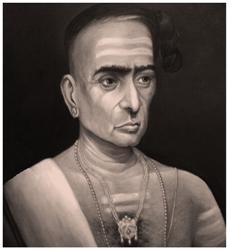
The English East India Company, at many occasions, could not withstand the war ingenuity of Tippu. Lord Cornwallis himself went in to the battlefield thinking that it was his personal need to win the war. The declared aims of Cornwallis were to dethrone Tippu, enthrone a heir of the old royal family of Mysore and free the kings from the aggressions. As it was monsoon season the war was stopped for a short while and during the intermission plans were devised to attack Sreerangapatnam, the headquarters of Tippu by the induction of more forces from Bombay. In the meantime attempts were afoot by the British to enter in to new agreements with kings of Malabar and to recapture territories lost by them. Shakthan Thampuran declared loyalty to the Company. General Medows, Governor and commander-in-Chief of Madras of the English East India Company met the Zamorin at Coimbatore and by the treaty signed between them the Zamorin came under the protection of the Company. Furthermore, Palghat, Chettuva and Ponnani also went under the protection of the Company. Despite her opposition to the Company at first Arackal Beevi too, later, surrendered to the English. After vanquishing Cannanore the British hoisted their flag over St. Angelo Fort. And thus all the places between Cannanore and Chavakadu were now under the protection of the Company.
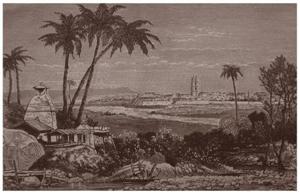
In February 1792 the English forces reached Srirangapatna. Tippu, who always saved himself from ruin by his tactical skill, expressed his readiness to enter in to an agreement with the British. By the Treaty of Srirangapatna1792, Tippu ceded the territories, Dindigal, Malabar, and Kudagu. Tippu had to give a huge amount to the British as compensations for the losses it was sustained during the war and his two sons were taken as hostages by the British until the payment. From the territories annexed from Tippu Nizam was granted the strip of land between river Pennar and Krishnanadi while the English had under their sway Malabar, Cochin and Travancore, the Marathas getting another little stretch of land.
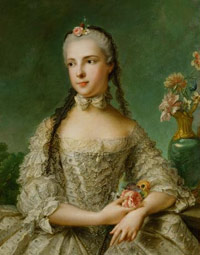
While the English were pondering over new agreements with the kings of the territories now with their control by the Treaty of Srirangapatna and over reordering administration at these places, Karthika Thirunal Rama Varma understood the true colour of the English East India Company since they have demanded huge amount as compensation for the protection they provided to Travancore during the war. The king made out that it would be an arduous task to mobilise the amount by taxation and it would amount to harming people. But the Company was insistent on the amount. Owing to mental strain the Maharaja became a patient. Dewan Keshava Pillai mobilised a sum of Rs 700000/ in a desperate bid and the issue was settled for the time being. Still the balance of the huge amount was outstanding. The plight of the kings of Malabar was more pitiable than that of Rama Varma Karthika Tirunal. They, who had been expecting the return of their respective territories from the clutches of Tippu, were shocked to find the new decision of the Company. On 23 March 1792 General Abercromby, the Governor of Bombay was appointed to take a decision on the Malabar issues. On his direction two commissioners, William Farmer, the senior merchant of the Company, and Major Dow, the Commander of Tellicherry, were appointed to effect necessary changes in politico-administrative matters of Malabar. They started negotiation with the exiled and existing rulers of Malabar. In 1792 two more commissioners, Jonathan Duncan and Chrales Boddam were appointed direct by Lord Cornwallis, the Governor General. The Joint Commissioners decided that the British had to administer Malabar directly and those kings who had to lose their countries should be given away huge amount as pension and land free of taxation and conferment of 'malihans', a title vested with the ex-rulers enabling them to have tax-free land and high social positions. The ex and exiled kings had no other ways than to accept the decisions of the English power. Then the Joint Commissioners started to set in to motion a new administrative apparatus. Free trade was accepted expect in pepper. Slave trade in Malabar was abolished. Two law courts were established in Kozhikode.
When the Joint Commissioners were conducting negotiations, for the creation of the district of Malabar, France was boiling in the cauldron of unrest. The French Revolution that began with the slogans equality, freedom and fraternity slipped in to murder and mayhem. There was chaos in the administration. Thousands of innocent people were killed at streets. Louis XVI the king and Mary Antonito, his wife who were imprisoned by the revolutionaries were those among the killed. In the meanwhile, when the country was under the grip of violence and carnage there came a youth who secured the confidence of the people in him. It was Napoleon Bonaparte.
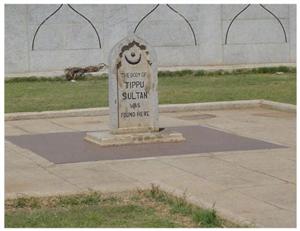
The British decided to inaugurate the British Malabar in the first anniversary of the victory at Srirangapatna. General Abercromby himself turned up at the inauguration held 18 March 1793 in front of the Government house Kozhikode. William Gamul, the supervisor, was invited by Abercromby to read out the blue print as to the district of Malabar. It was only after that the swearing-in-ceremony was held. Farmer took an oath that as revenue officer of the English East India Company he would discharge the duties vested with him truthfully and would not receive money or gifts from anybody. He was also the Chief Magistrate of the district and then James Stevens as superintendent of south district and Augustus William Handlay as Senior Assistant to the Superintendent took oath. Calicut was the head quarters of the Malabar province. For administrative convenience, the district was divided in to South Malabar and North Malabar with Tellichery and Cherppalachery as headquarters respectively. Before the formation of the district of Malabar Pazhassi Raja, the young lord of the Padinjare Kovilakam branch of the royal family of Kottayam launched revolt against the English East India Company. Kerala Varma Pazhassi Raja was the young prince who helped the British and waged a guerrilla warfare when the kings and chieftains of Malabar fled to Travancore during the invasion of Tippu. Even during the war he put in to practice a variety of measures aimed at helping the peasantry of Kottayam. His revolt was caused by the excessive taxation and the action of the British to hand over the right to collect taxes of Kottayam to his uncle, the Raja of Kurumbanad
The Dutch got ready to leave the country. Malabar Cochin and Travancore moved at the present under the flag of the British. It was Pazhassi in Wayanad who was only at war with the English who were on their fag end of their preparations for a final show down with the Tippu. He was in contact with foreign countries. The Dutch sold off all the posessions they had with them to the king of Cochin. In the meanwhile news reached here that the French army sneaked in to Holland and its ruler fled to England. With this it was ordered that all the possessions of the Dutch in the East Indies should be handed over to British in order that they should not be occupied by the French.
Coming to know that at any time the British would come to take over the fort , the Dutch governor kept food grains and so on in the fort. On 23 July the troops of English East India Company under Major Petrie reached to Cochin from Calicut and besieged the fort.
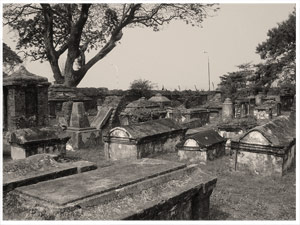
in Kerala
At the discussions held after a few days the Dutch agreed to vacate the fort. But when it was delayed the English fired at the fort. Immediately the Dutch raised the white flag and thus surrendered.
On 20 October 1795, the Dutch vacated the fort of Cochin forever. The relation between Cochin and the Dutch was of 130 years old. Those now holed up in the fort had their ancestors rest in peace in Cochin. So, some expressed their sadness in leaving Cochin. For such people the British granted permission to stay in Cochin. Others embarked on ships to Bombay for leaving for Batavia (Indonesia). When they bade good bye to Cochin moving over the Arabian Sea the Union Jack of Britain was fluttering over the fort of Cochin in place of the Dutch flag. Once, the Dutch flag was fluttering over the fort built by the Portuguese. Then the Dutch flag fluttered replacing it... Thereafter the English flag... Time changes... At the chess board of history, chessmen are changing places. Only it is time that stands as a witness to all the events.